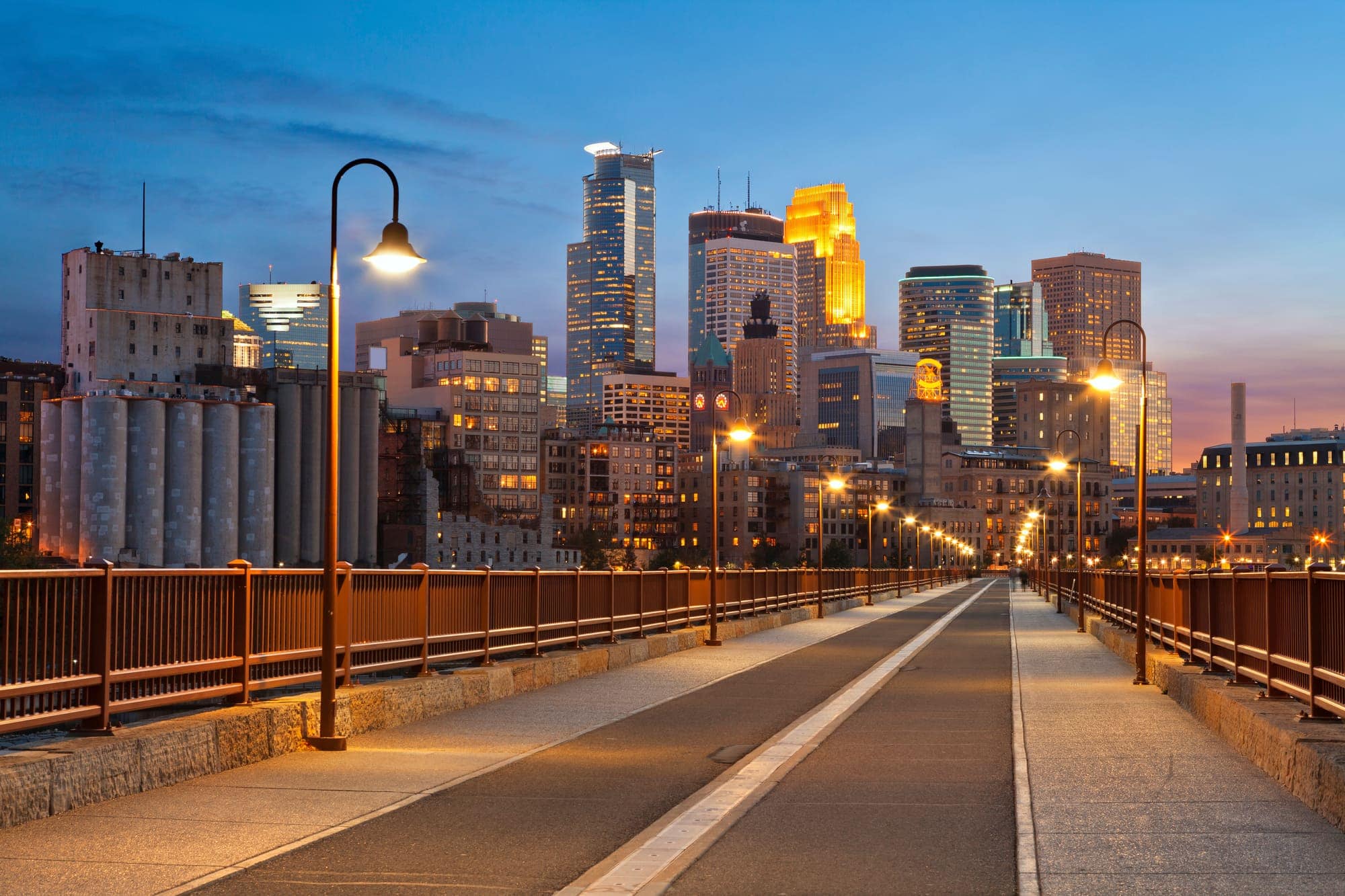Minneapolis is the City of Lakes, and that nickname alone gives you a good idea of what to expect if you move there. Beyond the stunning nature, the city has impressive school districts up to the university level. There are also unique neighborhoods, so you can find one that fits the type of community with which you prefer to surround yourself.
It might seem overwhelming to try and move to a new city, so this guide will help you learn more about the populous city in Minnesota. You can also look online to see any properties available if you’re moving to Minneapolis to get a jump start on the process.
Minneapolis at a Glance
Minneapolis is a large city, with the metro area having a population of over 418K residents. The city continues to grow, meaning the culture gets more vibrant and the economy more robust. If you’re looking for a change, Minneapolis might be the best city for your move.
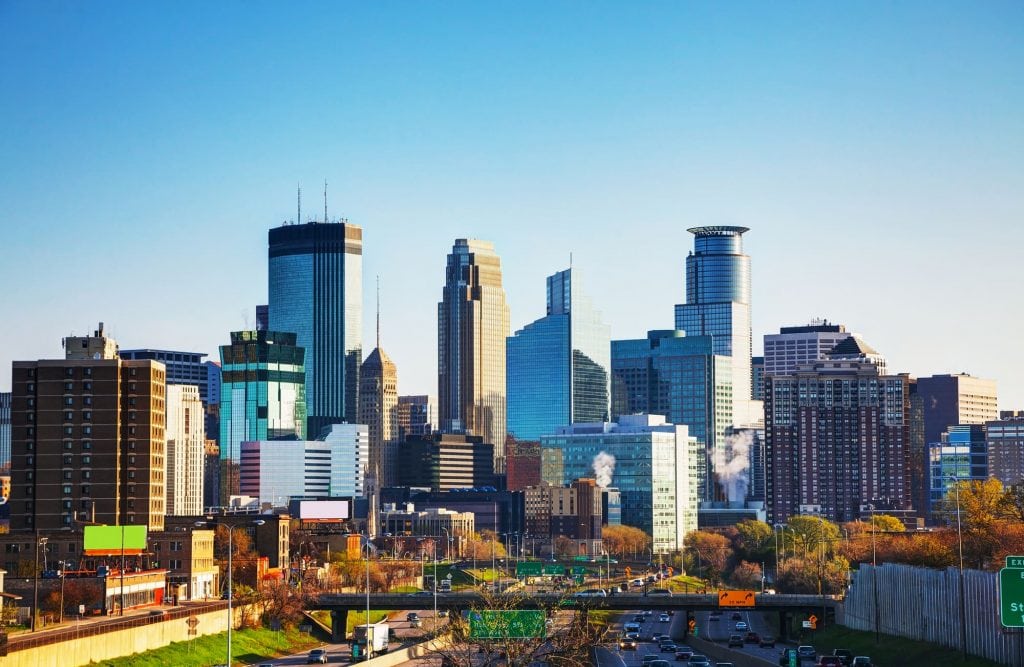
Cost of Living
Minnesota’s overall cost of living is average, though it’s slightly more expensive in Minneapolis than in major cities nationwide. Your comfort level will depend on your career, where you choose to live, and whether you splurge or live frugally. However, living comfortably in Minneapolis without breaking the bank is possible.
Utilities are about average, while gas and bus fare is higher than in other cities. You’ll save money at the grocery store with prices about 5% lower than average. Healthcare is 2% higher, but you have many quality hospitals and doctors around to provide care, so it’s easy to find a provider.
Minneapolis Economy
Housing prices in Minneapolis are about 8% lower than the national average, whether you buy a property or pay rent, so you’ll get more bang for your buck.
The sales tax rate is 8.03% in Minneapolis, though that changes, often getting lower, if you go to other nearby cities, including Saint Paul. You’ll pay annual federal income taxes, of course, along with a state income tax. Four state tax rates depend on your income bracket:
- 5.35%
- 7.05%
- 7.85%
- 9.85%
Minneapolis has many productive industries that call the city home, with jobs available in:
- Government
- Healthcare
- Hospitality
- Manufacturing
- Retail
- Social assistance
- Technology
Some Fortune 500 companies in Minneapolis include:
- Clorox
- DuPont
- General Mills
- Sherwin-Williams
- Target
- U.S. Bank
Though the nation’s economy fluctuated in recent years, Minneapolis’s unemployment rates stayed relatively stable compared to other metro areas, offering many job opportunities to residents.
Real Estate in Minneapolis
Like most of the country, the Minneapolis real estate market fluctuates frequently. House prices are down about 7.9% compared to statistics from the previous year. Houses remain on the market for about a month, compared to two weeks last year. The average home sale cost is about $315K, below the national average.

Minneapolis has many different home styles across its neighborhoods. Most older houses are from between the 1900s and 1940s, while later builds were more eclectic. Some of the common house styles in the city include:
- Bungalow
- Cape Cod
- Craftsman
- Prairie
- Ranch
It’s best to look for houses you like within certain neighborhoods, whether you want to live close to work or in a specific school district. These four neighborhoods are among the most popular in Minneapolis:
- Fulton
- Linden Hills
- Loring Park
- North Loop
You can rent in Minneapolis, but so many people look for properties that it’s a landlord’s market. That means you’ll pay a lot for rent if you’re lucky enough to find a place. It’s less competitive to buy a house if you have the funds available.
Schools in Minneapolis
If you’re moving to Minneapolis with children or plan to start a family, you’ll appreciate knowing the Minneapolis Public School system is high-quality. There are great schools in every district, with some of the best including:
- Armatage Elementary
- Burroughs Elementary
- Hale Elementary
- Howe Elementary
- Lake Harriet Lower and Upper Elementary
There are also many private options for elementary, middle, and high school education. Again, they vary by neighborhood, so you may choose to live closer to a specific school for your child. Some of the top-ranked private schools include:
- The Blake School
- Brightmont Academy
- City of Lakes Waldorf School
- Fusion Academy
- Groves Academy
Private school tuition is higher in Minneapolis, at just over $10,000, compared to elsewhere in the state, which averages closer to $7,000.
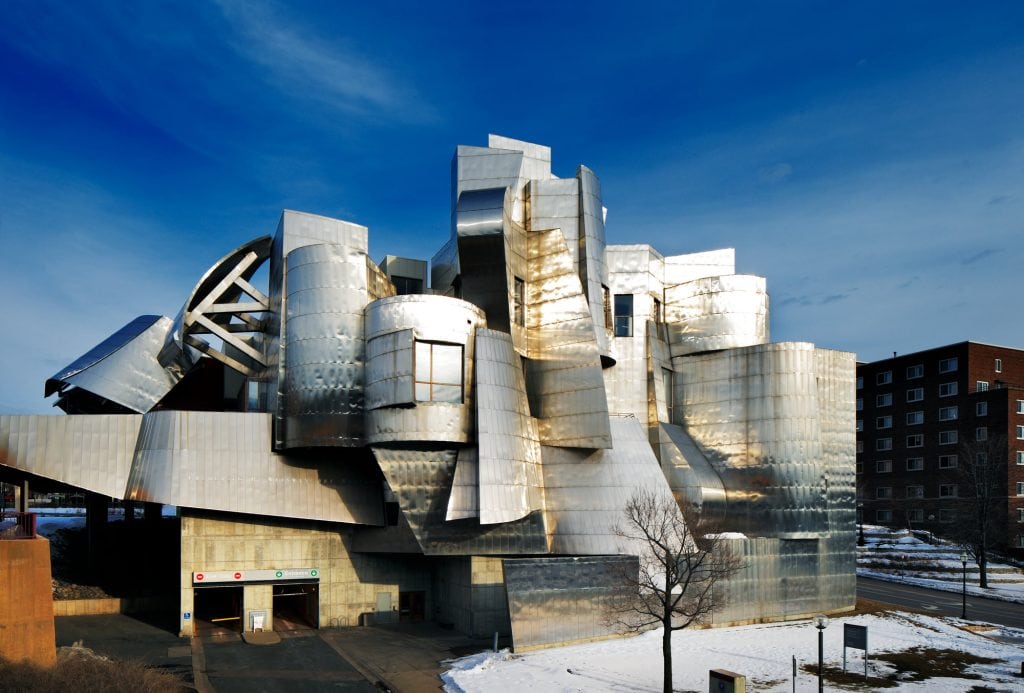
There are many options for higher education in Minneapolis. You can attend various private colleges, including:
- Augsburg University
- Dunwoody College of Technology
- Minneapolis College of Art and Design
- North Central University
The University of Minnesota is the largest public college in Minneapolis. It offers undergraduate and graduate degrees, along with research certificates in many fields. The university is home to inventions such as the first pacemaker and retractable seat belt. It’s also leading the field of cancer therapies, advanced agricultural production, and biodegradable plastics.
Metropolitan State University is another public college option in the Twin City of Saint Paul. It started as an institution helping working adults complete higher education, and the student population still skews older, with more diversity than many college campuses.
Minneapolis Trademarks
After learning about the city’s backbone, you should have a good idea of the fun cultural experiences Minneapolis offers.
Wellness Hub
Minneapolis often ranks in the top ten when it comes to “fittest cities” in the United States. The reasons for this honor vary, with the baseline being that there is more health care coverage, plus the accessibility to public parks and lakes to encourage outdoor fitness activities. The air quality is also high, which makes it easier to spend time outside and stay healthy.
Prepare To Go Lake-Hopping
Minneapolis has more than 22 lakes, so lake-hopping is a great way to experience nature. The Chain of Lakes is just ten minutes from downtown, with five of the largest lakes linked together. Canoe or kayak through them, stay on shore and walk or bike along the path. When the freezing temperatures create ice, you can skate or play hockey on the surface.
You can rent canoes, kayaks, and paddle boards on many of the lakes in the city limits. Some guided tours take you down the Mississippi River, too, which makes a great day trip.
You can also visit the Mississippi River at Minneapolis’s riverfront. Stone Arch Bridge is a former railroad bridge that crosses the Mississippi. You can walk or bike across and see the stunning St. Anthony Falls nearby. Another waterfall is within city limits—Minnehaha Falls.
Prepare for Extreme Weather
Believe it or not, Minneapolis can get colder than Iceland! You’ll experience freezing or sub-freezing temperatures for about five months of the year. However, that will benefit you in summer, when the weather gets warm but not uncomfortably hot. Plus, with such cold weather, you can enjoy skiing, ice skating, and ice fishing.
You Won’t Get Lost
Minneapolis streets follow a grid system, meaning everything is fairly structured. You won’t head down one street only to find that it turns slightly, sending you in a different direction. Downtown is the exception, where the streets run parallel to the Mississippi River.
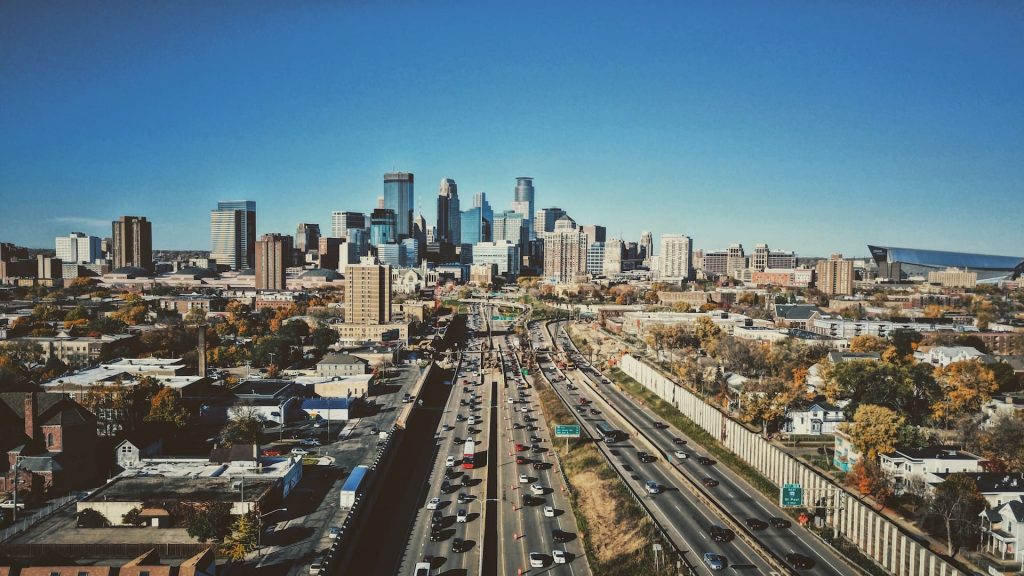
The street names are also easy to remember, with many streets having presidential names in order. Streets running north to south in certain neighborhoods have names that fit the theme, like the Cedar-Riverside neighborhood with tree names.
Other downtown streets have numbers for the names, like in New York City, so you can easily determine your course to a destination.
Only Maybe in the Mall of America
The Mall of America has more than 500 stores on four floors, so it’s possible to get lost inside—but you’ll have a blast if it happens! Not only are there tons of retail stores, but there’s an indoor theme park called Nickelodeon Universe. There’s also an aquarium tunnel in the Mall of America.
Transportation Is a Breeze
Many people think that big cities require a car to help you get around, but Minneapolis is incredibly walkable or bikeable. There’s even an enclosed bridge system downtown called the Minneapolis Skyway.
You can also choose to take public transportation, which includes buses and a light rail. While you might wish to blast the heat in your vehicle when it’s freezing outside, living in Minneapolis without a car is possible.
The Great Northern Festival
The Great Northern Festival is a winter festival that lasts ten days. Though it’s cold outside in the winter months, you’ll have so much fun and excitement that you’ll feel warm inside. You can even visit nearby Saint Paul for Great Northern events. If you love outside games like hockey, sledding, and skiing, you’re in for a treat. If not, you can enjoy ice carving and beer sampling.
The Twin Cities
Minneapolis and Saint Paul are so close that they’re the Twin Cities; you can get from one to the other within about ten miles. The name makes it sound like the cities have a lot in common, but that’s not true. You’ll get a different experience in each city, making this location enjoyable for all the diversity.
Minneapolis, for example, has a bustling feeling on the streets and a skyline filled with skyscrapers. The income and education levels are higher in Minneapolis. However, Saint Paul has a lot to offer with a more laid-back, sleepy town feeling that’s a great getaway from Minneapolis after you move.
Sports Are a Big Deal
Minneapolis has many sports teams, so it’s no surprise that it’s a competitive sports city. If you’re a sports fan, you’ll love that the Twin Cities have six major league teams. You can root for the following:
- Minnesota Lynx, the WNBA team
- Minnesota Timberwolves, the NBA team
- Minnesota Twins, the MLB team playing at Target Field
- Minnesota Vikings, the NFL team
- Minnesota United FC, the MLS team in nearby St. Paul
- Minnesota Wild, the NHL team also in St. Paul
Top-Notch Park System
Minneapolis may have 22 lakes within the city limits, but its parks would like a word—there are 180 parks in the city. According to the city government, six city blocks is the longest anyone has to walk to reach some green space. Once there, you can walk, run, bike the paths, play games on the fields, have a picnic, or kick back and relax.

Some of the most popular parks include:
- Boom Island Park
- Minnehaha Park
- Regional Park
The park system often ranks as the best in the nation, but the natural beauty isn’t all it offers. The city hosts live bands through the Music in the Parks program at Lake Harriet, and there are often parades, festivals, and sports tournaments happening at any park near you.
The Country’s Top Hospitals
There are many of the country’s top hospitals in Minneapolis, such as:
- Abbott Northwestern Hospital
- M Health Fairview Southdale Hospital
- M Health Fairview the University of Minnesota Medical Center
- Park Nicollet Methodist Hospital
- United Hospital
If that wasn’t enough in the city limits, there are other amazing hospitals near the Twin Cities. Regions Hospital in Saint Paul ranks highly, along with Mercy Hospital in Coon Rapids. Just 95 miles southeast is a major campus of the Mayo Clinic in Rochester, Minnesota.
Local Art
There are many art galleries and museums in Minneapolis. Once you move and get settled, make time to visit the following:
- American Swedish Institute
- Dreamsong Gallery
- Mill City Museum
- Minneapolis Institute of Art
- Minnesota African American Heritage Museum and Gallery
- Museum of Russian Art
- Walker Art Center
- Weisman Art Museum
If you don’t want to spend the day inside a museum or gallery, check out some of the public art in Minneapolis. There are stunning murals you’ll want to map out and see in person. Plus, less than an hour northeast of the city, you can visit the Franconia Sculpture Park.
Wisconsin Rivalry
College sports are also intense in the Twin Cities, with a major rivalry between the Minnesota Golden Gophers from the University of Minnesota fighting against the Wisconsin Badgers from the University of Wisconsin-Madison. Also called the Border Battle, it’s the most-played rivalry in college football, with 132 games between the two. As of 2022, the rivalry is 62-62-8.
Minneapolis Cuisine
Every city has a cuisine they’re known for, but Minneapolis has six trademark dishes you will want to take advantage of. You can try them at many different restaurants in this city known for its delicious food scene.
If you love burgers, you’ll have to try the Juicy Lucy. This burger looks normal, but it’s anything but. When you bite inside, you’ll realize it’s stuffed with melted cheese.
Cheese curds are bits of cheese deep-fried. You can eat them as a snack or order them as a side to your Juicy Lucy burger when you’re out.
Because there are so many lakes in the city, you know there’s great fresh seafood. Minneapolis offers walleye in many different ways, like grilled or fried. It’s always fresh and tastes great.
Hot dish might sound like a generic name for a casserole, but this refers to a very specific item. The casserole includes hamburger meat, canned peas, macaroni, tomato soup, and onion. Top it off with tater tots, and you’ve just found your new comfort food.
There’s a large Vietnamese population in Minneapolis, which means there are high-quality pho restaurants around the city.
Forget About Starbucks Coffee
Most people think of Seattle as the biggest coffee city because it’s the home of Starbucks, but Minneapolis doesn’t need that chain. In fact, many credit the city for the third-wave coffee economy.
Minneapolis uses ethically sourced, small-batch coffee, encouraging fair trade. Not only will your caffeine fix taste better than ever, but you can buy it without guilt because you know you’re supporting the farmers and importers behind the beans.
Diverse Neighborhoods
You learned about four of the most popular neighborhoods in Minneapolis, including Loring Park. But there are many great neighborhoods in the city. For example, if you want to live near the university and be around your fellow students, Dinkytown is the place to be. You’ll find dive bars, cool thrift stores, and always find a place to listen to live music.
However, Prospect Park is another great neighborhood for college students. It’s not as eclectic as Dinkytown and offers quiet when you need to buckle down and study. Still, the area boasts sturdy historic homes and plenty of restaurants and retail stores.
You might want to check out Longfellow if you prefer a quieter scene. Yes, it refers to Henry Wadsworth Longfellow, and the area gives off a very historical, literary vibe. You’ll love the walking and biking trails twisting around the neighborhood.
People who want a trendy area in the middle of the action may want to choose between Downtown East or North Loop. Both areas have plenty of opportunities for nightlife and retail therapy. They also have engaging events, like farmer’s markets and green parks, with plenty of chances to join in on a game on a nice afternoon.
FAQ: Moving to Minneapolis
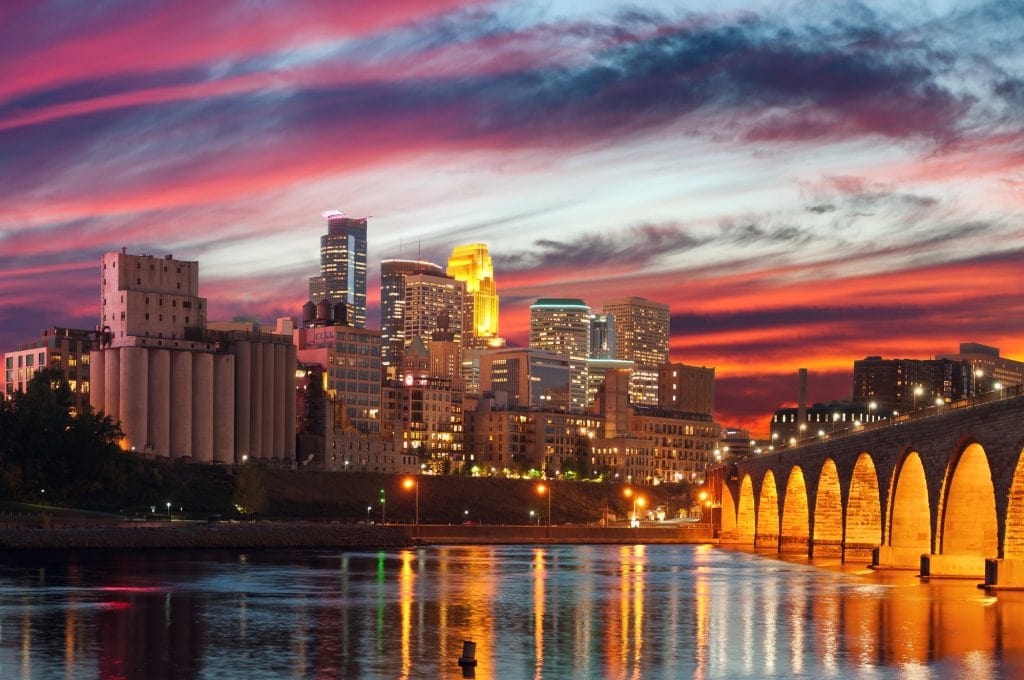
You’ve learned a lot of great things about moving to Minneapolis. If you need more information, check out the answers to these frequently asked questions.
Is it a good idea to move to Minneapolis?
Yes, Minneapolis is a wonderful city with plenty to offer. You’ll have an average cost of living with the benefit of cooler summers than most of the country. During the cold winters, you can enjoy a wide range of outdoor recreation and festivals. It’s a walkable city with gorgeous nature everywhere you turn.
What salary do you need to live in Minneapolis?
Your salary requirements will vary depending on your lifestyle. With frugal living, you can make ends meet with less money since the city’s cost of living is comparable to most of the nation. However, the annual household income in Minnesota is just over $60,000, so that’s a good baseline to keep in mind.
Why are people moving to Minneapolis?
The population of Minneapolis continues to grow, so many wonder why people move there. The bottom line is that the city has a great infrastructure. You can walk, bike, or use public transportation, cutting out the costs associated with a vehicle. The city is easy to navigate and has tons of natural beauty. It’s no surprise that more people move there annually.
What are the pros and cons of living in Minnesota?
As you learned from this guide, there are many pros of living in Minneapolis. To generalize the pros and cons of the state, one of the biggest cons has to be the winter weather. It’s a very cold environment, but if you participate in seasonal outdoor activities, you might not even notice the cold. The pros, in general, have to include the state’s natural beauty.
Should I move to Minneapolis or St. Paul?
It’s a personal decision between moving to Minneapolis or St. Paul. St. Paul has a lower cost of living, but Minneapolis is a walkable, bustling city with lots to offer. Thankfully, your choice isn’t the end of the world because the cities are incredibly close together. Move to one and visit the other frequently to get the best of both worlds.
Is Minneapolis a walkable city?
Yes, Minneapolis is incredibly walkable. It’s easy to find your way because the streets are on a fairly strict grid, so you don’t need to worry about veering off course as a road changes direction. It’s also a city for bikers because there are covered bridges for walking and biking in cold or bad weather.
Final Thoughts on Moving to Minneapolis
If you’re thinking of moving to Minneapolis, get started today. You can search for properties or sign up to get email alerts for new listings. Also, if you have already decided on a Minneapolis home, contact a local eXp real estate agent. They can guide you through every stage of the home buying process. There’s no need to wait to move to this wonderful city!
